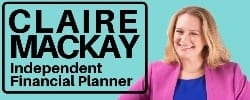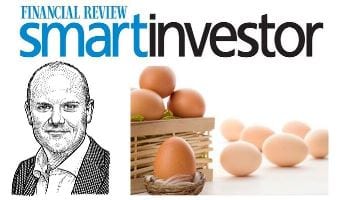We summarise the key issues for our jet-setting retiree clients following the material super changes announced in Budget 2016.
Note: This is general advice and takes no account of your personal circumstances. Please contact your Quantum Financial advisor for personal advice.
First of all, we know that not all of our retiree clients are still jet-setting around the world as perhaps they did in their youth. However, it is remarkable how young at heart and active these wonderfully inquisitive clients remain and how much they keep us on our toes. For us, the term ‘jet-setting’ encompasses their inquisitiveness, their community involvement, their worldly views and their openness to new and different things. So with that in mind, we share our views on what Budget 2016 may mean for you.
Our jet-setting retiree clients have worked incredibly hard in their successful professional to build up their family’s wealth and they want peace of mind their wealth is working hard for them. Typically they view themselves as custodian of their family’s significant wealth. If this is you, this is what Budget 2016 means for you.
The changes that potentially impact me
- If you have more than $1.6m in your pension account, the balance in excess of $1.6m will be rolled back into accumulation mode and taxed at 15% on earnings
- If you are aged 65 to 74, you no longer need to meet the works test to contribute to super from 1 July 2017
- If you’re under 75, you can claim a tax deduction for super contributions (up to $25k per year).
- What do I need to know?
1. Individual member balance less than $1.6m in pension phase
The proposed super changes will have little impact on your retirement savings. You won’t be subject to the proposed tax on balances greater than $1.6m. If you are intending (and are able) to make future super contributions, seek advice from your Quantum Financial advisor so you understand the potential tax implications. Be mindful that the $1.6m cap will increase slowly over time in line with the measure of inflation known as AWOTE (Average Weekly Ordinary Time Earnings).
2. Member balance $1.6m to $2.0m in pension phase
If you have a member balance of $2.0m then $400k ($2.0m less $1.6m) of this balance will now be subject to super tax. (15% on earnings, 15% on capital growth; except for assets held more than 1 year which attract tax of 10%). Note: Your pension payments will remain tax free.
Growth of 6.5% on $400,000 gives a return of $26,000 which is then taxed at 15%. This results in estimated tax as low as $3.9k before any dividend imputation credits or fund deductions.
If you do not have any investments outside of super or any other sources of income, we will also potentially consider withdrawing the $400,000 from your super and investing it in your personal name. Depending on your circumstances and tax status, this could result in zero tax being paid rather than the $3.9k.
We will also look at using our ongoing asset class and investment switching decisions before 1 July 2017 as opportunities to re-set the cost base of existing investments, reducing the tax you may pay.
If this is you, seek advice from your Quantum Financial advisor. In the member super bracket $1.6m to $2.0m, it is not likely that the benefit of implementing more advanced strategies will be worth the additional costs. We will quantify the benefit and the cost on a case-by-case basis to place you in the best position.
3. Member balance greater than $2.0m in pension phase
As above, any super amount in your member balance above $1.6m will now be subject to super tax within your super fund (15% on earnings, 15% on capital growth; except for assets held more than 1 year which attract tax of 10%). Note: Your pension payments will remain tax free.
We estimate the annual super tax payable before any dividend imputation credits or fund deductions.
We will look at using our ongoing asset class and investment switching decisions before 1 July 2017 as opportunities to re-set the cost base of existing investments, reducing the tax you may pay.
For our clients in this situation we can estimate the potential tax liability and offer you more advanced strategies on a case-by-case basis. This can involve tax effective investment strategies, segregation strategies and reserving strategies to reduce your potential tax liability.
4. Member balance greater than $1.6m and your estate planning
You should also be aware of the estate planning implications from these super changes. Previously you could have a pension account of any size and that pension account could be reversionary to your spouse. That meant that upon your death, that pension would remain in the super environment and would revert to the name of your spouse. This did not require a withdrawal from super nor a contribution back into super.
Under the new rules, amounts in excess of $1.6m in your member balance will now be rolled back into accumulation mode. This means upon your death, your member accumulation balance cannot be reversionary to your spouse as it’s not in pension phase. Instead, if you leave this amount to your spouse it must be withdrawn from your super and then, subject to your spouse’s age, contribution cap and history, your spouse can try to recontribute it to their super. If they can’t contribute it to their super, it is even more imperative they have advice on tax effective investment structures such as trusts and companies.
These potential changes impact a raft of highly complicated and inter-related issues and so we strongly recommend that you seek professional advice from your trusted Quantum Financial advisor.
5. If you are aged 65 to 74
Under the old rules, to contribute to your super over aged 64, you needed to meet the work test (40 hours in 30 consecutive days). This will continue to be the case for this financial year 2015/16 and for next financial year 2016/17.
However, from 1 July 2017 you will no longer need to meet the work test to contribute to your super. You will be able to make non-concessional contributions up to age 74 subject to your lifetime cap of $500k (which is calculated back to 1 July 2007).
From 1 July 2017, you will also be able to make concessional contributions of up to $25k each year without meeting the work test or meeting the old 10% rule (you could only claim a tax deduction if your income as an employee is less than 10 per cent of your total income).
6. If you have a Defined Benefit Super Scheme, please contact us for strategic advice tailored to your specific situation.
What can I do pre 30 June 2016?
Use any short term asset class and investment switching decisions as an opportunity to re-set the cost base of your existing investments, reducing the tax you may pay.
What can I do longer term?
Use ongoing asset class and investment switching decisions before 1 July 2017 as opportunities to re-set the cost base of existing investments, reducing the tax you may pay.
If you want to know more, request a copy of our Budget 2016 Survival Guide.




